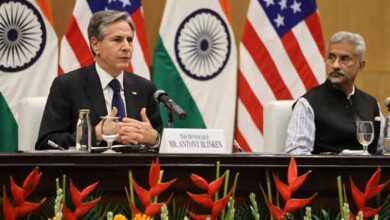
A British man has launched legal action against UAE state security officials, claiming he was stopped, falsely detained and tortured for wearing a Qatari football shirt, his lawyers confirmed on Friday.
Ali Issa Ahmad, a security guard from Wolverhampton in central England, sent formal letters of claim to six security officials in the Gulf monarchy on Thursday, London legal firm Carter-Ruck said in a statement.
Ahmed is seeking damages for false imprisonment, assault and battery, intentional harm — including psychiatric harm — and negligence while detained in the emirate of Sharjah between January 23 and February 12, 2019.
“I was very badly tortured and nearly killed in prison in the UAE,” said Ahmed.
“They tried to make it look as though I did these things to myself, that I cut and burnt myself. It is so cruel and wrong that they did this,” he added.
Major General Faris Khalaf al-Mazrouei, commander-in-chief of the Abu Dhabi Police; Major General Saif al-Zari al-Shamsi, commander-in-chief of the Sharjah Police, and Counsellor Saqr Saif al-Naqbi, head of State Security Public Prosecution in Abu Dhabi, were among those named in the case.
In 2019, Ahmad told the UK’s Guardian newspaper security officials detained him after he was spotted wearing the football strip of the UAE’s regional rival Qatar.
At the time the UAE had severed ties with Qatar and had supported a Saudi blockade of its land borders. The diplomatic crisis was resolved in January 2021 in a US-brokered agreement.
Ahmad had travelled to the emirates to watch a 2019 Asian Cup match between Iraq and Qatar. He was unaware that wearing the shirt was an offence punishable with a fine and a jail sentence.
He said he was deprived of sleep, food and water while in detention and was stabbed a number of times in his chest and side.
He became convinced he was going to die in the UAE and said he was subjected to racial and psychological abuse.
The UAE embassy in London did not immediately respond to requests for comment when contacted by AFP.
Ahmad’s arrest came less than a year after the detention of Matthew Hedges, a university researcher. He was held in solitary confinement for months and sentenced to life in prison on espionage charges before being pardoned by UAE authorities five days later.






